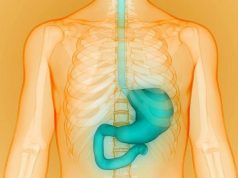Periodontal pathogen Tannerella forsythia linked to increased risk of esophageal adenocarcinoma
MONDAY, Dec. 4, 2017 (HealthDay News) — Oral microbiome composition is associated with the risk of esophageal adenocarcinoma (EAC) and esophageal squamous cell carcinoma (ESCC), according to a study published online Dec. 1 in Cancer Research.
Brandilyn A. Peters, Ph.D., from the NYU School of Medicine in New York City, and colleagues examined the correlation between oral microbiota with EAC and ESCC risk in a prospective study nested in two cohorts. 16S rRNA gene sequencing was used to assess oral bacteria in prediagnostic mouthwash samples from 81 cases with EAC and 160 matched controls and from 25 cases of ESCC and 50 matched controls.
The researchers found that the periodontal pathogen Tannerella forsythia correlated with increased risk of EAC. Lower EAC risk was seen in association with depletion of the commensal genus Neisseria and the species Streptococcus pneumoniae. There was also a correlation for bacterial biosynthesis of carotenoids with protection against EAC. There was a trend toward increased risk of ESCC with abundance of the periodontal pathogen Porphyromonas gingivalis.
“Overall, our findings have potential implications for the early detection and prevention of EAC and ESCC,” the authors write.
Copyright © 2017 HealthDay. All rights reserved.








